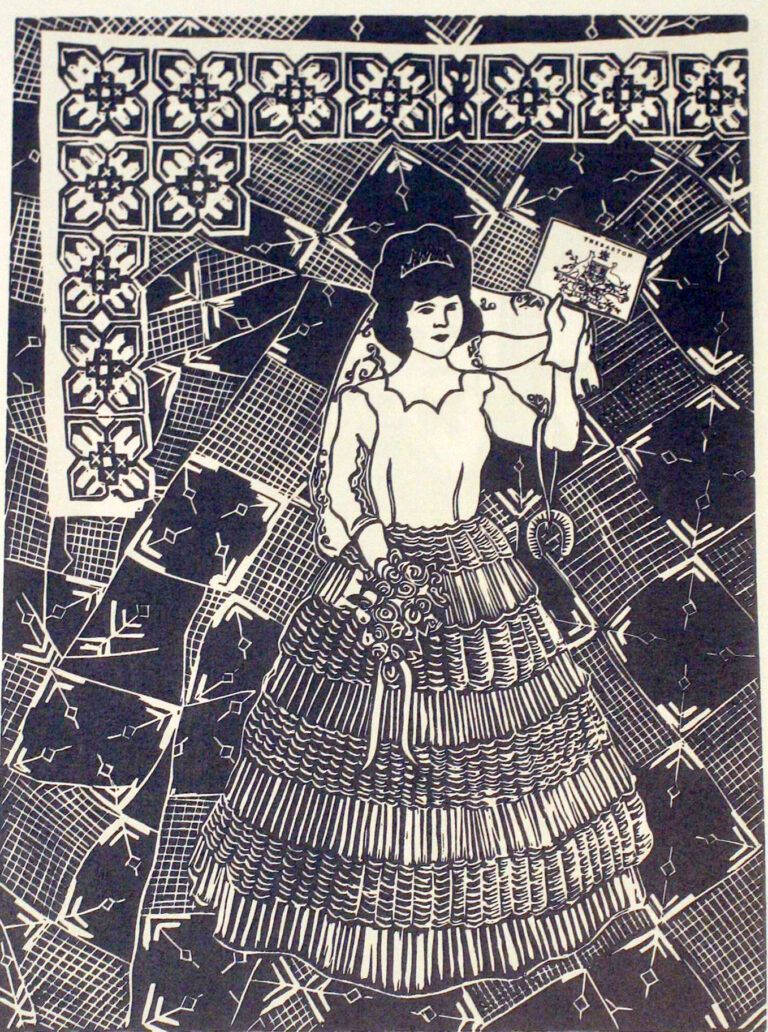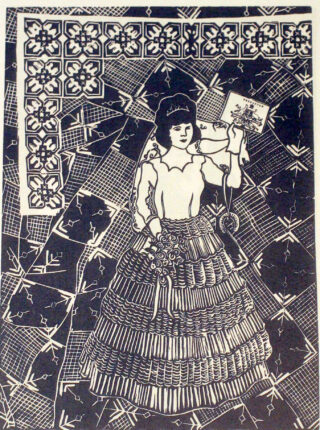- Entry type: Person
- Entry ID: AWE2137
Bekas, Anastasia
(1939 – )
Summary
Anastasia Bekas was born in Greece in the late 1930s, the youngest of four children. She liked school and was a good student, her teachers encouraged her to attend high school. Unfortunately, she could not live this dream because, as was customary at the time, she had to leave school because her help was required to run the farm. She was a good, hard worker, but in the end her father encouraged her to migrate to Australia, as a way of avoiding the dowry he would eventually have to supply should she stay in Greece. The Australian government was keen to attract single Greek girls to the country at this time. As long as she had somewhere to stay, they would pay her fare. ‘You are healthy, you are going to Australia’, she was told. ‘So I have to go.’
She migrated to Australia, where her sister already lived, in December 1963 and arrived in Adelaide, where she would settle, on January 14, 1964. Adjustment was difficult, with the lack of English language skills being the major problem.
Details
Anastasia, like millions of other women who arrived in the waves of post war migration, had few skills, little, if any English but a strong desire to work. In the 1960s and 70s, when the provision of post-arrival migrant services and programs was demonstratively inadequate, this combination was a never-ending source of frustration for women who wanted to make a contribution. Anastasia describes this frustration in an interview done for the Thebarton Community Arts Network Project:
‘My sister said that young people were being brought here to help the country prosper. I couldn’t speak English, it was hard when my family wasn’t there to help me. My brother in law could speak English a bit. I wanted to work but he said it would be hard with no English. He helped me go to Social Security but I had to go to the interview by myself on the bus. I didn’t know how much to pay on the bus, the conductor took the right money from my hand. I didn’t understand anything at the office – they sent me home. I cried and cried. Then I got a letter telling me I had to go to school to learn English. I went to Thebarton Primary School two nights a week but we only learned words like bread, water, hello. I wanted to learn words that would help me to get a job. I had to persuade our teacher to teach these words.’
Archival resources
Digital resources
Published resources
- Book
-
Resource
- Trove: Bekas, Anastasia (1939-), http://nla.gov.au/nla.party-764093
